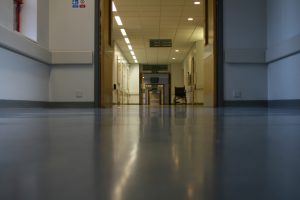In August 2015 my Dad had a total knee replacement (TKR) of his left knee.
At this point in time he had been investigated by his geriatrician and was diagnosed with Mild Cognitive Impairment (MCI).
MCI is not dementia.
However, some people will progress to a diagnosis of dementia and others will not.
There have been many studies and articles written about conversion from MCI to dementia, but I’m not going to delve into those in this post.
So, in August 2015 Dad underwent his TKR.
He had a wonderful orthopaedic surgeon who listened and supported me and my family in Dad’s post op management.
You see, I knew Dad was going to develop a delirium post op and boy oh boy…he did!
The mother of all deliriums!
The delirium that Dad experienced post operatively would be one of the worst I have ever seen in all the years I have been nursing.
It took its toll on Dad and his cognition and it took its toll on me.
Dad didn’t sleep for almost 3 days.
He didn’t even doze off over those excruciating 60 hours where he was hallucinating, combative, constantly trying to get out of bed (whilst his leg was strapped into the Continuous Passive Motion machine) and pulling at all his drains and intravenous fluids.
He was constantly calling out, though most of what he was saying was incomprehensible.
He yelled at me and when I tried to reassure him he raised his fist and told me to get away.
He was hearing people who were not there and seeing animals crawling on the wall and running in the corridor.
He wouldn’t eat or drink and wouldn’t take his medications.
Watching my Dad’s helplessness, distress, fear and complete confusion nearly broke my heart.
Being able to recognise and knowing how to manage a delirium, I did everything I could to support Dad through this terrible experience, but it really felt like this challenge was beyond me.
He needed constant observation, reassurance and support.
I stayed at the hospital each night and my family took it in turns to be with Dad during the day.
We implemented all the non pharmacological measures we could.
Re orientation within his environment, trying to maintain his day/night cycle and his daily routine in hospital.
We ensured he still managed to eat and drink and we were alert for urinary or bowel issues such as urine retention or infection or constipation.
We brought his favourite music into the hospital and played it on a portable CD player.
We brought photos from home and magazines that he often read.
After the first 36 hours and none of our non pharmacological interventions making any difference I talked to Dad’s orthopaedic surgeon and we decided to try a small dose of haloperidol.
Using antipsychotic medication in the elderly and those with a cognitive impairment is not without risk, but Dad’s situation was grim and this considered approach was worth a shot.
Watching. And waiting. And silently praying.
The haloperidol had no effect on Dad.
So we then tried a small dose of another antipsychotic medication, risperidone.
At the introduction of risperidone, Dad’s symptoms gradually began to subside.
I won’t ever know if it was a combination of everything we were doing or the cumulative effect of sleep deprivation and exhaustion and the 2 antipsychotics we introduced, but whatever it was, it began to have a positive effect and Dad started to settle.
Dad remained in hospital for 2 weeks.
He was still very, very confused for the duration of his hospitalisation, but he was able to participate in his rehabilitation program for his knee.
The knee was great, by the way. It healed beautifully, and the prosthetic knee allowed him to walk without pain.
The haloperidol and the risperidone were ceased, and we maintained the non pharmacological measures throughout his hospitalisation.
His sleep/wake cycle returned, and the hallucinations decreased.
At the time we took Dad home, his confusion was still present, but we knew that returning him to his familiar environment, home, was going to give him the best chance for the delirium to resolve.
And it did resolve, over the next 6 weeks, but the insult that occurred to his brain whilst he was experiencing the delirium, brought about his eventual diagnosis of Alzheimer’s disease in March 2017.
In my next post about delirium, I’ll describe the difference between hyperactive and hypoactive delirium and some simple measures that you, as a family or carer, can implement when your loved one is in hospital and experiencing delirium.
Leave a Reply